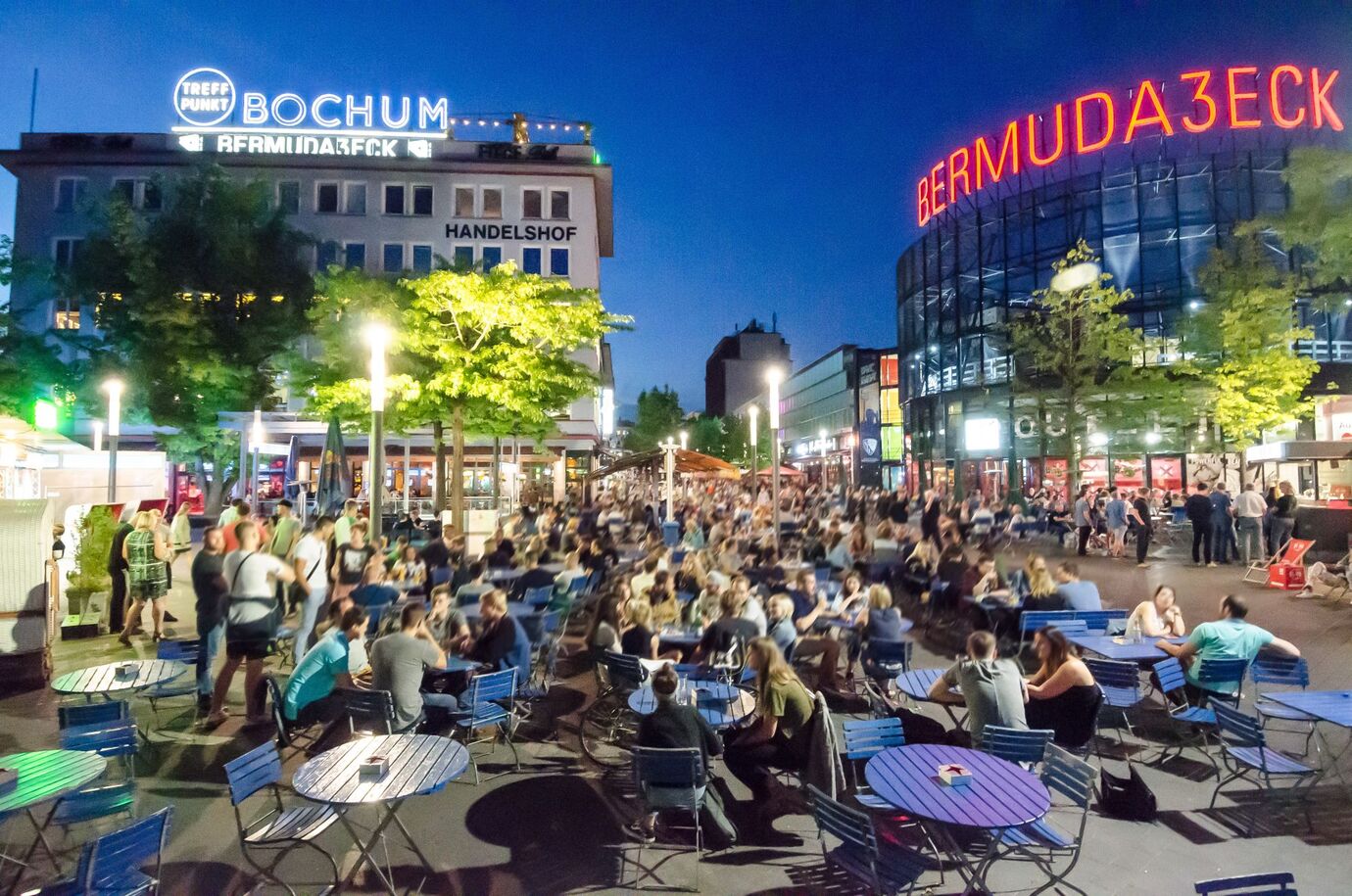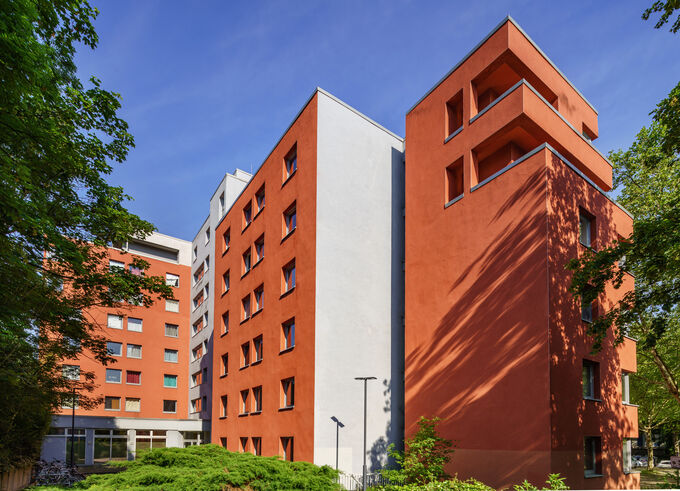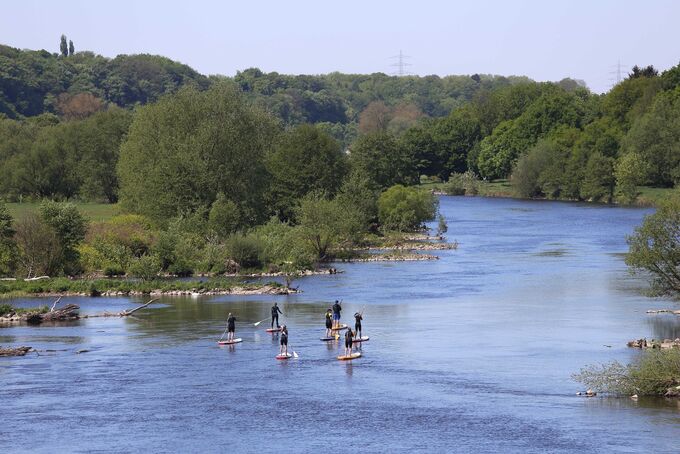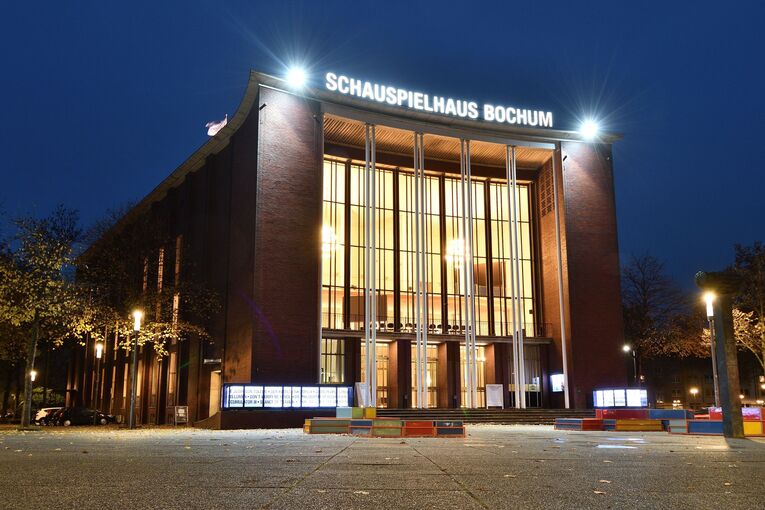What to expectIn the middle of the Ruhr area

Of course, Bochum can be seen as one city only – then it is a smaller city with roughly 365,000 inhabitants. However, Bochum can also be seen as part of the Ruhr area, which should rather be called Ruhr Metropolis, as more than five million people live in this hub on 4,400 square kilometres, making it the largest urban area in Germany.
Whatever Bochum will be for you: as it is located right in the centre of the Ruhr, it is the perfect starting point for any excursion and day trips. Regular train connections get you to Essen, Dortmund and Duisburg as well as the Rhine cities of Cologne and Düsseldorf. Recreation between and after the lectures can also be done by walking: taking a stroll the municipal park with its pond, rent-a-boat and the small zoo Tierpark next door. Bochum is situated between the Münsterland in the North and the Bergisches Land and Sauerland in the south where hikers and mountainbikers can enjoy the many trails provided. You are more for water sports? Then visit one of the many lakes and reservoirs nearby, for example, Lake Kemnade. Even the North Sea is only three hours by car, no matter if you prefer the Dutch or the German seashore. Capital cities like Berlin, Paris and Amsterdam are only a few hours away on high-speed trains.
Maybe that still does not make Bochum the centre of the world, but a part of it can be easily explored from here.
Student's lifeMore than learning
Student's life at THGA is of course more than attending lectures and passing exams. Whether at the campus or beyond: a student's life means to cope with daily routines and to explore the city, its surroundings and the Ruhr area as such!
Most important of all, you have to think of food and drink. The shortest way to handle that is across the courtyard: the university canteen known as Mensa. Other opportunities are the Café Kumpels at the German Mining Museum on the other side of the street, and a lot of fast food shops, pubs and cafés along Herner Strasse and in the residential areas around the university. If you start walking towards the town centre, you will experience Bochum's famous pubs and restaurants and, of course, Bochum's very own Bermuda Triangle (it is so easy to get lost there), the Bermuda3Eck, which turns into a huge beergarden in the summer. So there is no need to go home hungry or thirsty.
In the eveningWhat's on in Bochum
There are a lot of things to discover in Bochum. Let's start with some cultural highlights. On the other side of the street, there is an institute our university is closely related to, not only historically speaking: the German Mining Museum. This museum emerged from the THGA's predecessor and is owned by the same company, DMT-LB. We may be biased, of course, but for us, the Mining Museum is one of the most exciting museums in the Ruhr area.
Another close link will lead you to the geological park of Bochum, the Geologischer Garten, located in Altenbochum and in easy reach of THGA (Campus Line U35, exit at Waldring). Most of all, you should explore the Route der Industriekultur, a trail that introduces the Ruhr's industrial heritage and is one of the most spectacular and diversified cultural projects. This trail has been developed and extended over the last 30 years. One particular highlight is the Zollverein colliery in Essen, which has also been listed as a UNESCO World Heritage.
Anything else that's on in Bochum and in the Ruhr area you can find in local magazines such as BOMA (Stadtmagazin Bochum), on the city's Facebook and Instagram pages (Stadtportal Bochum), the Ruhr-Guide and the website of the regional magazine Coolibri. English information is also provided on this travel guide. Special cultural offers for students can be found on the AKAFÖ website.
Doing your bit for the universityGetting involved
Getting involved, i.e. taking a part in the university community and shaping its way forward, is not only an opportunity at THGA: it is much appreciated by the university management. Our Students' Parliament, the AStA committee (our students' union) and the Senate are the most important organisations in which students of THGA can get involved in university politics.
The committee work is not only important for the study programmes; the AStA also contributes to students' lives by organising important parts of campus life (e.g. sports) and campus festivities such as the traditional Barbaraball, a gala event held every year around the day of the patron saint of miners, St Barbara.
In addition to these official committees there are many more groups which help shaping campus life and support other students, and all of these are happy about every helping hand.


